Neighbors Making Neighborhoods: A Memphis “Revival” Flips the Conversation About the Mid-South Coliseum
Published February 06, 2016
ioby is more than just a crowdfunding platform: we’re a team of individuals who are passionate about helping neighbors make their neighborhoods safer, greener, more livable and more fun. We love hearing from ioby Leaders about their experiences planning, funding and implementing a project with us. We think by sharing these experiences, complete with both triumphs and roadblocks, we can help spread knowledge and maybe even inspire others to take action towards positive change where they live. [Photos by David Leonard.]
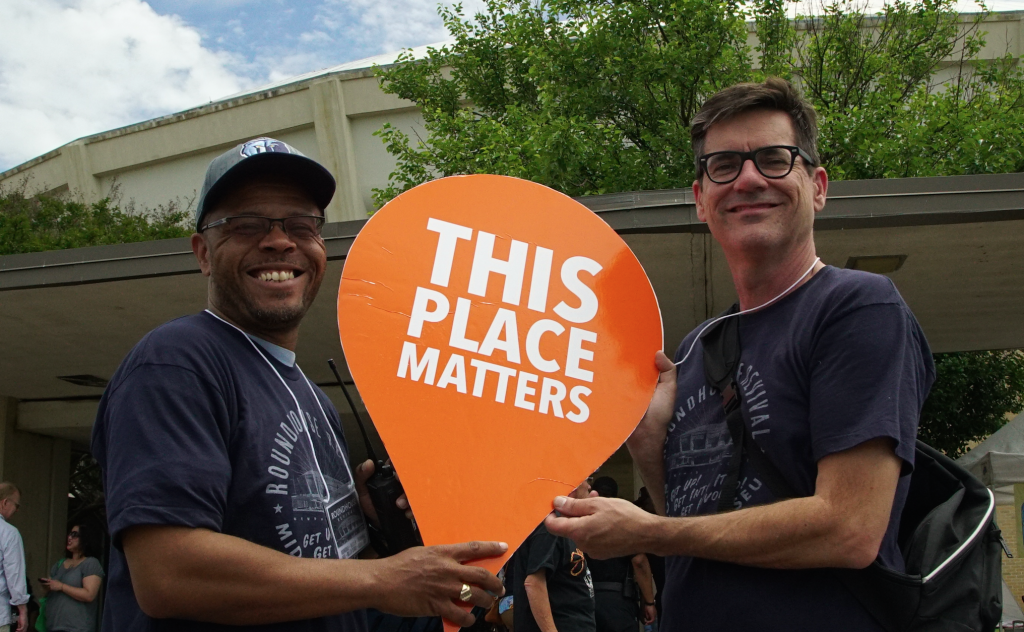
Many residents of the Cooper Young, Beltline and Orange Mound neighborhoods in Memphis saw more than a money pit when they looked at the shuttered Mid-South Coliseum. They saw history, culture, and an opportunity to influence city officials’ plans to demolish the building and redevelop the surrounding fairgrounds in a way that could anchor the neighborhood and even draw tourists.
Amid rumors that the City was considering demolishing the coliseum, neighbors came together to form the Coliseum Coalition, a group aiming to explore all options for restoring the coliseum. The building, which sits on the 155-acre Mid-South Fairgrounds, has sat mostly vacant since 2006, save for a few pieces of machinery stored there. But many Memphians have fond memories of visiting the coliseum for a concert or a sporting event during the 40 years prior to its closing. The building played host to local graduations, Monday night pro-wrestling matches, NCAA Division 1 college sports and music legends like the Beatles, Bruce Springsteen and Cher.
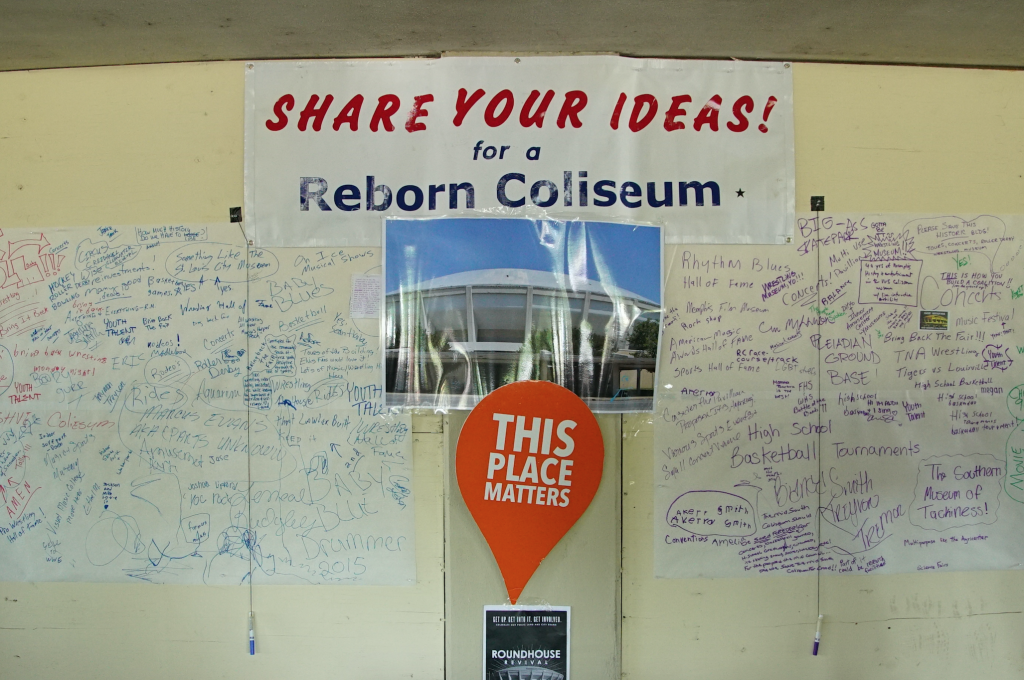
The efforts to repurpose the coliseum weren’t born out of nostalgia alone. The Coliseum Coalition felt the community’s input on the future of the site was being ignored. At that point, “the official momentum was strongly against keeping the Coliseum” says Roy Barnes, Coliseum Coalition Treasurer.
To bring attention to the community’s role in the planning process, the group planned a “previtalization” event called Roundhouse Revival to celebrate the building’s history and potential. Previtalizating is a strategy often used by tactical urbanists to unite people on a development site in order to demonstrate community support and influence plans for the space.
The Coliseum Coalition turned to ioby to raise money and gain publicity for Roundhouse Revival. At the time, ioby and Livable Memphis were offering matching funds, and campaign organizers took full advantage of the extra $1,500 awarded to Roundhouse Revival. The coalition raised a total of $6,264 from nearly 100 donors, exceeding their original funding goal.
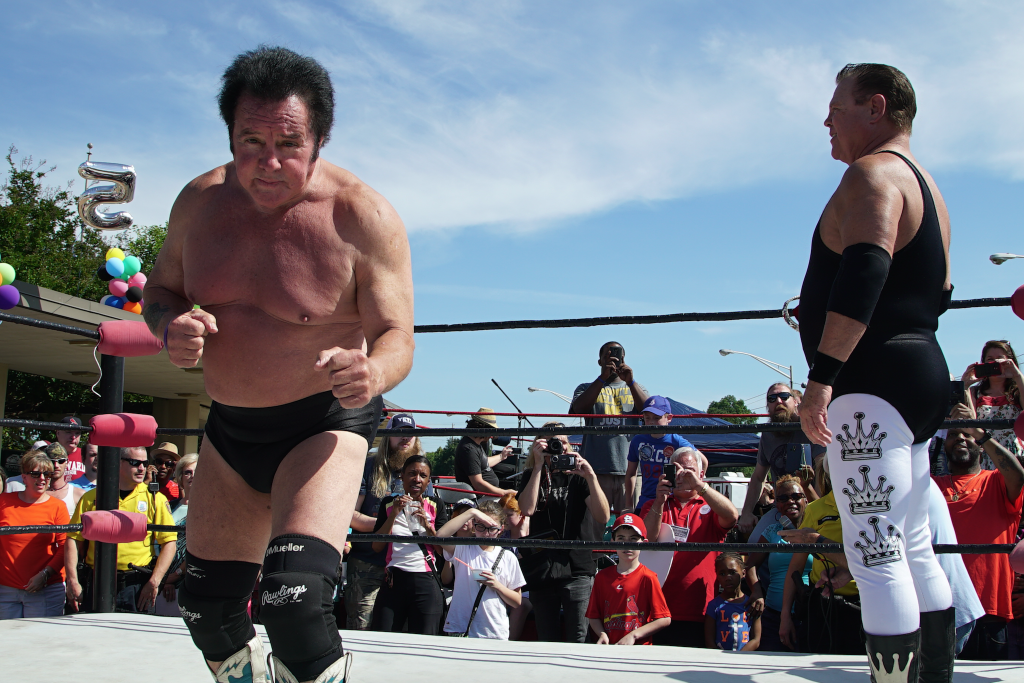
Even before the event, City official took notice of the community excitement around the campaign. Coliseum Coalition officers got a meeting with City representatives to ask if they would waive event permitting fees to keep the project within budget. But the agency that had previously been pushing to demolish the building made an even better offer – they gave the coalition a $15,000 grant!
In a matter of months, City officials had gone from opposing any kind of plan that repurposed the building to funding the community members’ event celebrating its potential – they even asked to make it official: “As part of the conditions of the grant, we had to put the City of Memphis logo on our ads moving forward and give them credit,” said Barnes.
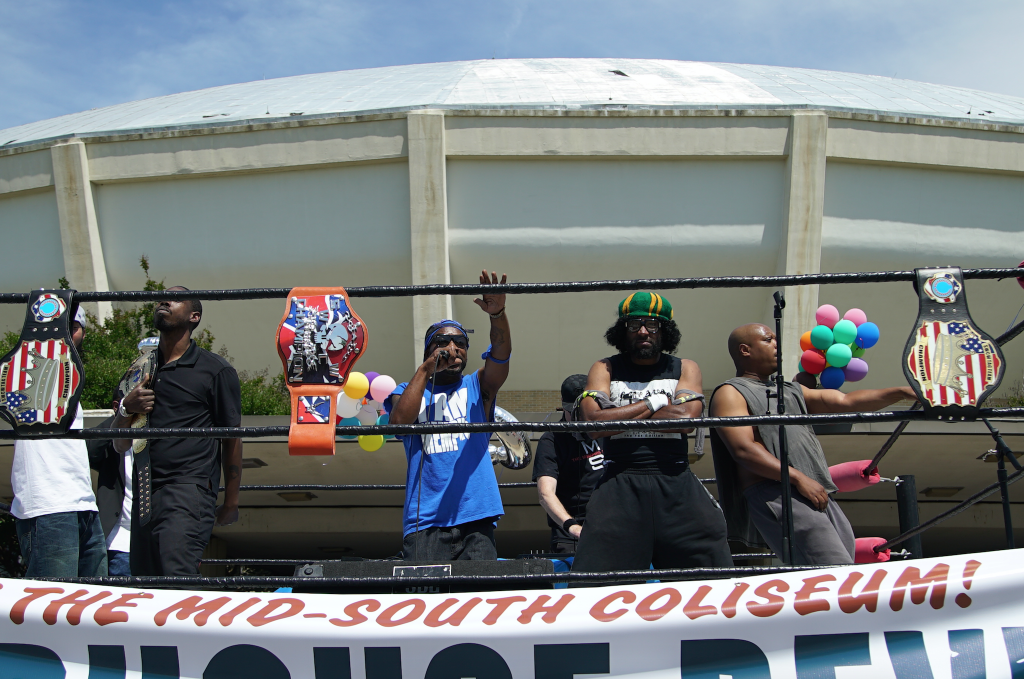
More than 4,000 people came to Roundhouse Revival. The colorful daylong celebration in May featured musical performances, including a live wrestling showcase with former pro-wrestlers Jerry Lawler and Bill Dundee. Community members brainstormed new uses for the Coliseum that ranged from an R&B Hall of Fame to a homeless shelter. And all of that energy made a major impact. “After Roundhouse, the momentum had swung and all the mayoral candidates expressed either support for reopening or taking a good second look at reopening,” said Barnes.
A few months following the event, the City of Memphis invited Urban Land Institute (ULI), a research and education institute dedicated to responsible land use, to advise the City on the best way to move forward with planning for the site. Responding to the community’s demonstration of support for the Mid-South Coliseum, a ULI report recommended that the “roundhouse” be repurposed rather than demolished.
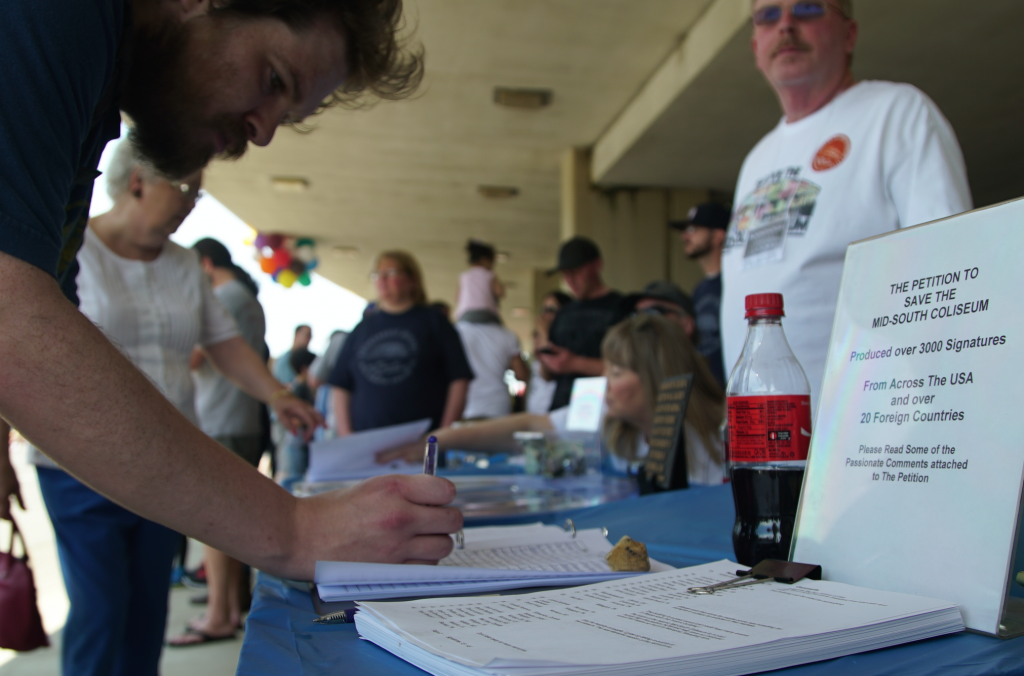
The Roundhouse Revival story is one of our favorites because it shows the power of a group of loosely-affiliated organizers to use a small amount of money to coalesce community enthusiasm and ultimately turn enough heads at the City to effect a policy change. Add a pro wrestler or two, and you get a perfect picture of local, citizen-led action that’s making a big impact.
